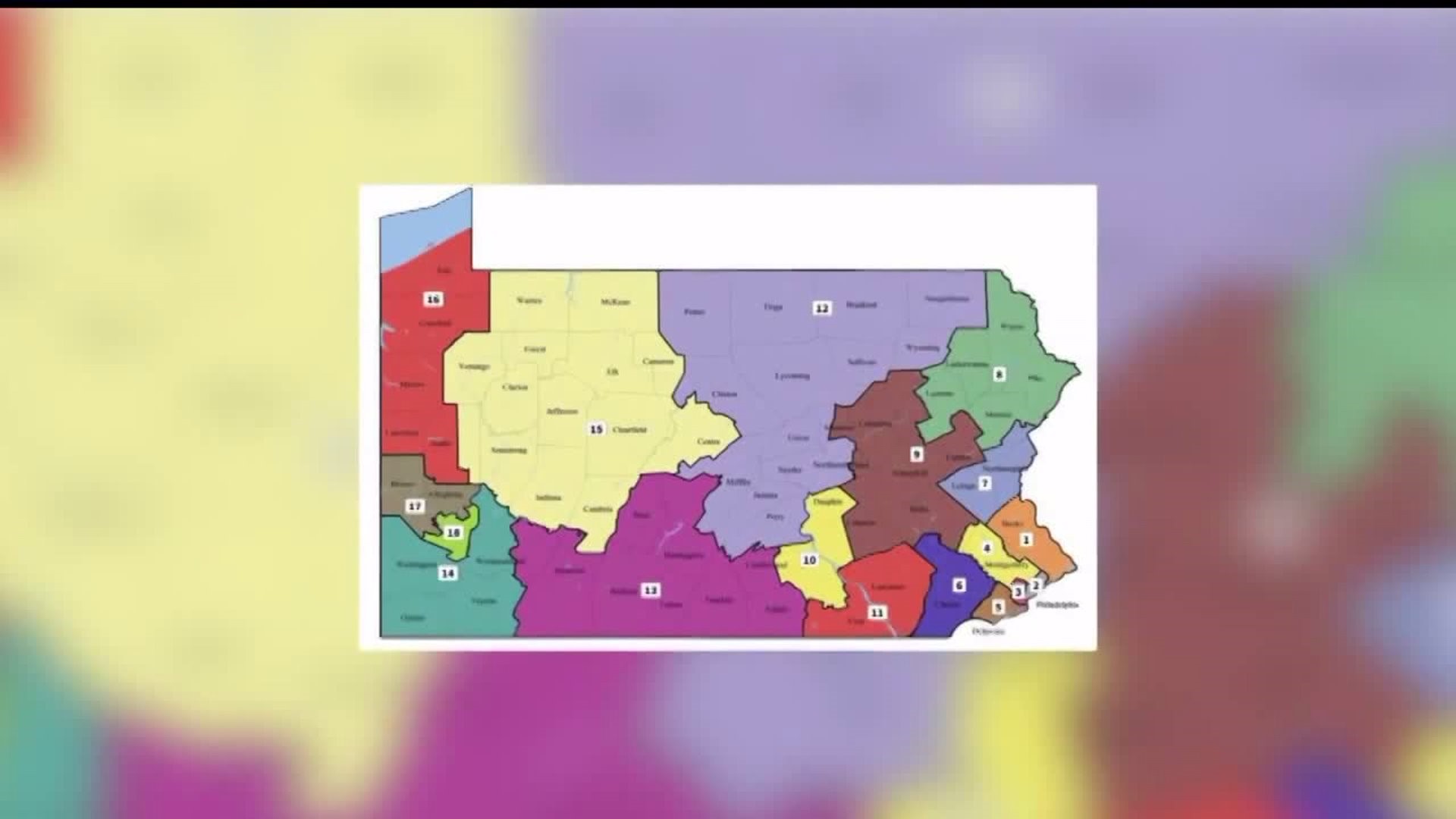HARRISBURG, Pa. — Mixed emotions linger after the Pennsylvania Supreme Court's release of a new map of the state's congressional districts.
The new map is bringing out feelings of frustration for Republican legislators, confusion for some voters, and hope for Democratic challengers.
The only things that are guaranteed in the 2018 election is that people running for congress have to be 25 years old; be a citizen of the U.S. for the last seven years; and live in the state of Pennsylvania.
What happens this May and in November is anyone's guess.
With a new congressional map drawn up by the State Supreme Court voters’ congressional district, and therefore their congressman may no longer be the same.
In central Pennsylvania, parts of District 4 become District 10, parts of District 11 become 12, and parts of District 16 become 11.
Common Cause Pennsylvania executive director Micah Sims said “don`t look for your number, look for where you are on the map, because obviously the renumbering situation has caused a bit of confusion as well, but nothing that education from the state, and good government groups like ourselves can’t help to facilitate.”
For some state legislators, the new map also brings frustration with the court, which Republican leaders say was over-stepping its bounds.
Rep. Cris Dush (R-Indiana County) said “the Supreme Court split more municipalities and wards than the map that I was actually allowed to participate in drawing did, so that I have a problem with when that was one of the main contentions of the Supreme Court’s ruling.”
The State Supreme Court redrew Pennsylvania's 18 congressional districts after a 2017 lawsuit filed by the league of women voters and other petitioners argued the previous map gave an unfair advantage to Republicans.
Dickinson College assistant professor of political science David O'Connell explained how that advantage is now up in the air.
“You now have seven safe Republican seats, under normal political conditions. You have five safe Democratic seats, under normal political conditions, and then you have six toss-ups.”
Those seats could effect politics not only in Pennsylvania, but nationwide.
“Because if the Democrats currently have five seats in Pennsylvania, and they`re able to win all six of those toss up seats in 2018, that could be one-fourth of the total number of seats that they need to retake the House of Representatives,” O’Connell said.
O’Connell believes all hope might not be lost for Republican incumbents though, to win over their new districts.
“They have a number of advantages, as incumbents. They have high name recognition. They also have access to the type of money that challengers often find difficult to raise. There’s no guarantee they`ll be facing difficult competition from the Democratic side,” O’Connell said.
Congressional candidates will have a lot to do in a short period of time before the May primary.
Candidates aren’t allowed to start circulating their nominating petitions until Tuesday, February 27th. That gives candidates less than a month to file their petitions to run by March 20th.
Meanwhile, some incumbents may find out they no longer live in the district they currently represent. That doesn’t necessarily stop them from running, but it might prevent them from seeking re-election or some candidates from running at all.
“Politically, not living in your district has always been something that members can be attacked for, and it’s usually seen as a measure of them being out of touch with their voters,” O’Connell said.
Republican state leaders threaten to take the matter to the U.S. Supreme Court.

